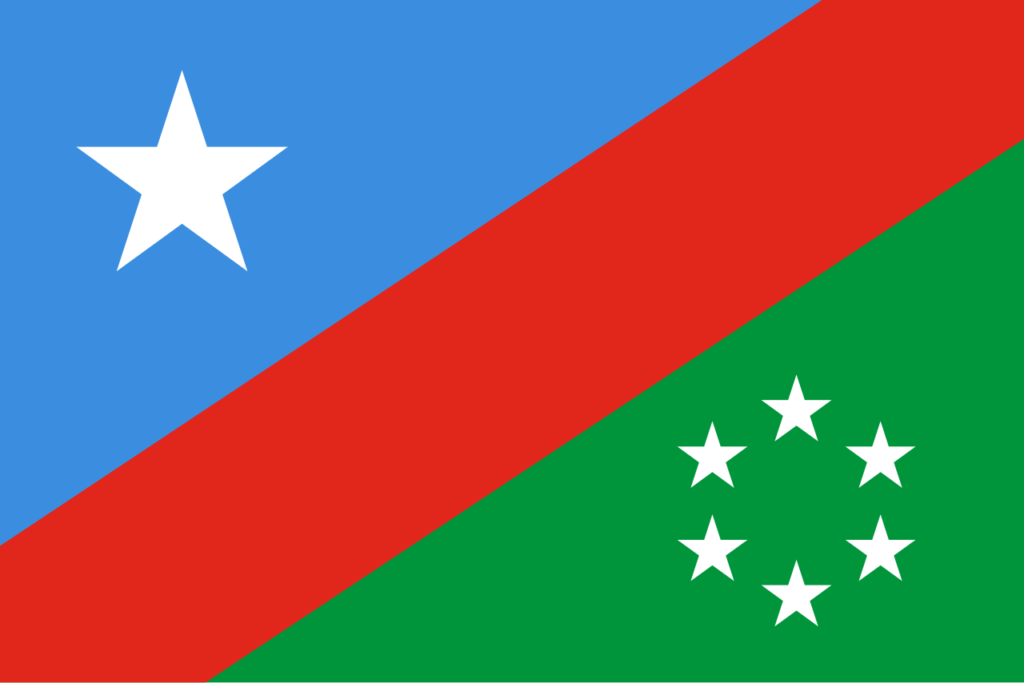
by
The political landscape in Somalia is constantly evolving with regional interests, and external influences. Among the most contentious areas is the South West region, where the presence of Ethiopian forces and the rising frustrations of regional president Abdiaziz Laftagareen with deep-rooted issues that the federal government in Mogadishu appears reluctant to address.
South West Region: A Historical and Strategic Misstep
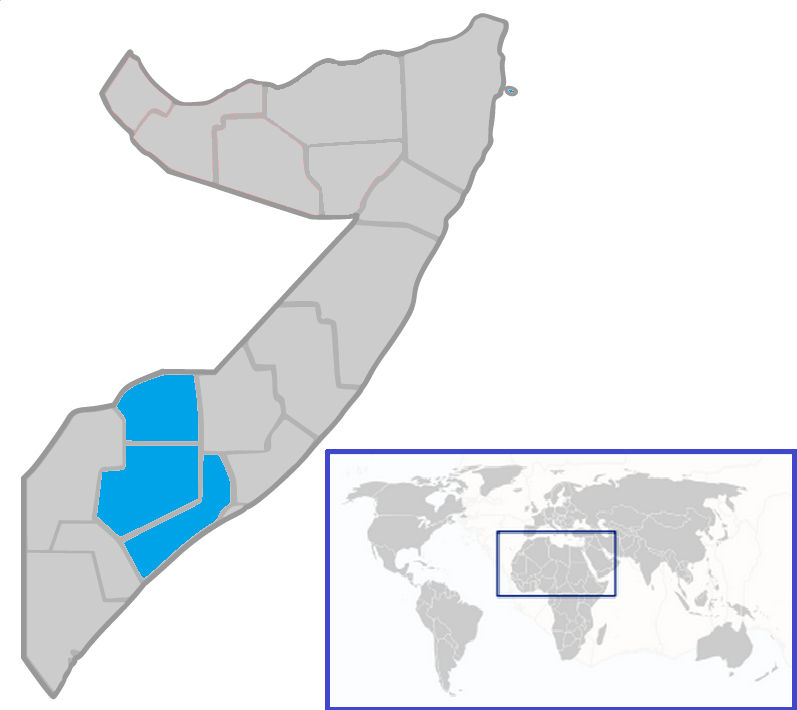
The South West region, rich in resources such as fertile land, minerals, and potential oil reserves, has long been a battleground for both local and international interests. Ethiopian forces, operating under the guise of stabilizing the region, have maintained a heavy presence, which no Somali could be happy with. Abdiaziz Laftagareen, the regional president, has voiced his frustrations over what he perceives as an occupation that undermines his authority and the autonomy of the South West state. His frustrations are not only about the external military presence but also about the broader implications for regional autonomy and development. The alleged planned deployment of Egyptian forces in South West and the federal government’s political maneuvers could only further complicate the situation.
Historically, the deployment of Ethiopian forces in the region was made without proper consultation with local stakeholders, exacerbating tensions and resentment among the population. The lack of local consultation and the imposition of external forces contributed to the rise of Al-Shabaab in the region, as grievances over foreign intervention fueled support for extremist groups.
Furthermore, the South West region, has faced chronic underfunding and inadequate resources to build and equip its own forces. This lack of support from the central government contrasts sharply with the opposition stance of the current administration, which had previously opposed the deployment of Somali National Army (SNA) forces in the region by the previous administration. This historical opposition highlights a shift in policy once they came into power, reflecting a broader pattern of inconsistent and politically motivated decisions. The federal government, which has been accused of politicizing the region against Abdiaziz Laftagareen is perceived to be undermining Laftagareen’s authority and destabilizing the region for political gains.
Egypt’s Rhetoric in the Shadow of Conflict
Egypt has been increasingly vocal against Ethiopia, particularly in relation to the Grand Ethiopian Renaissance Dam (GERD) on the Nile River. Egyptian rhetoric often hints at the possibility of war, rightfully so framing Ethiopia as a regional aggressor. However, this narrative overlooks the complex realities on the ground in the South West region of Somalia, where local populations are already vulnerable to terrorism and political instability.
Adding fuel to the fire, pro-Egyptian Twitter accounts and other pro-government accounts have been actively pushing propaganda that encourages conflict. One Egyptian account in particular, Khaled Mahmoued, is promoting a narrative that glorifies war while downplaying the severe impact such a conflict could have on the Somali nation. By stoking fears and inflaming hostilities, these voices are not only jeopardizing regional stability but also infringing on the sovereignty and well-being of the Somali people, who are caught in the crossfire of this broader geopolitical struggle.
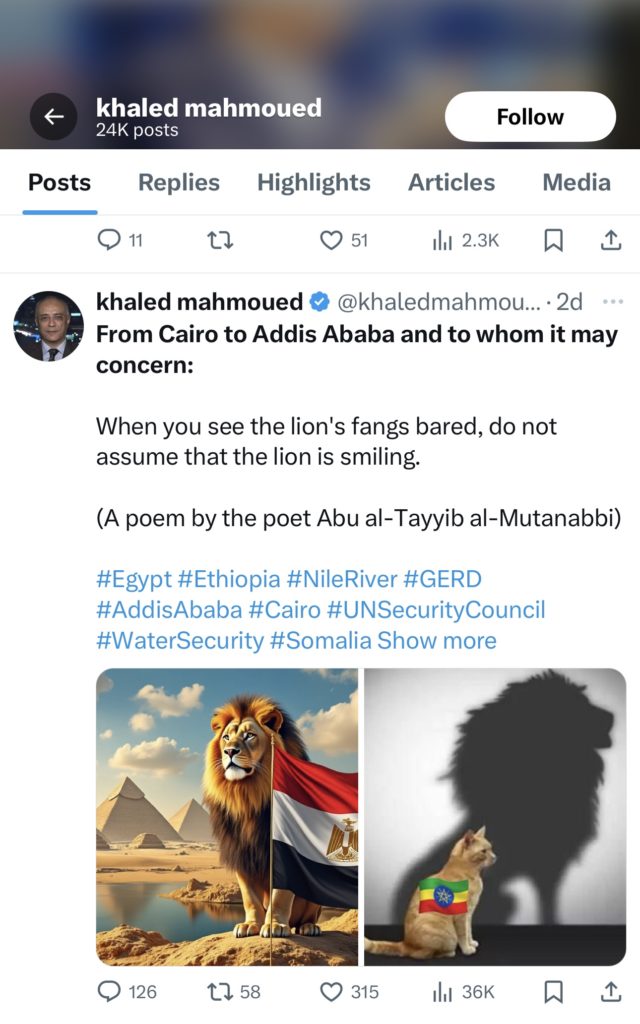
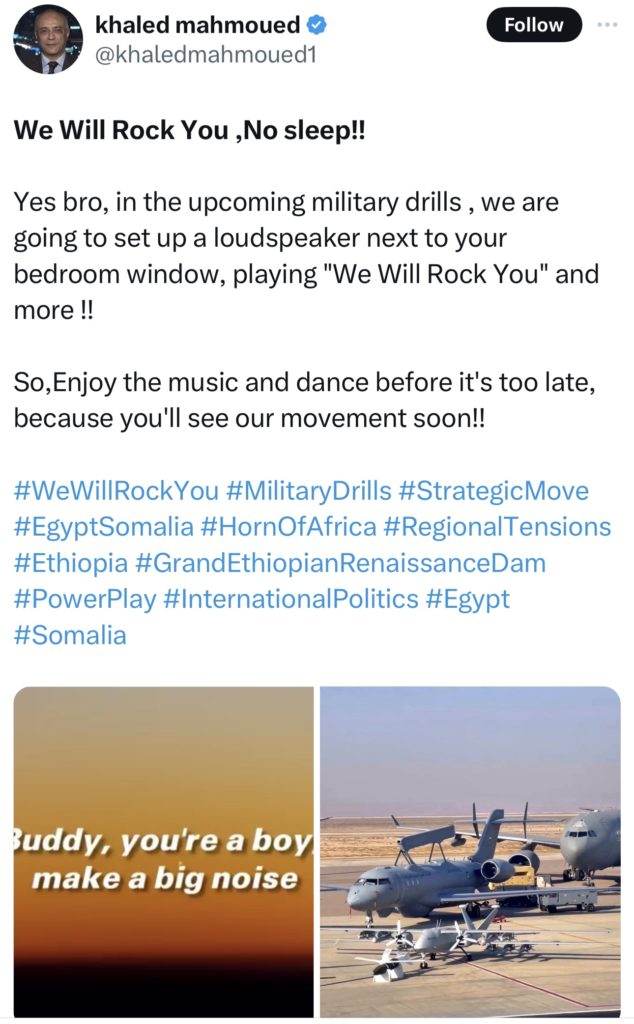
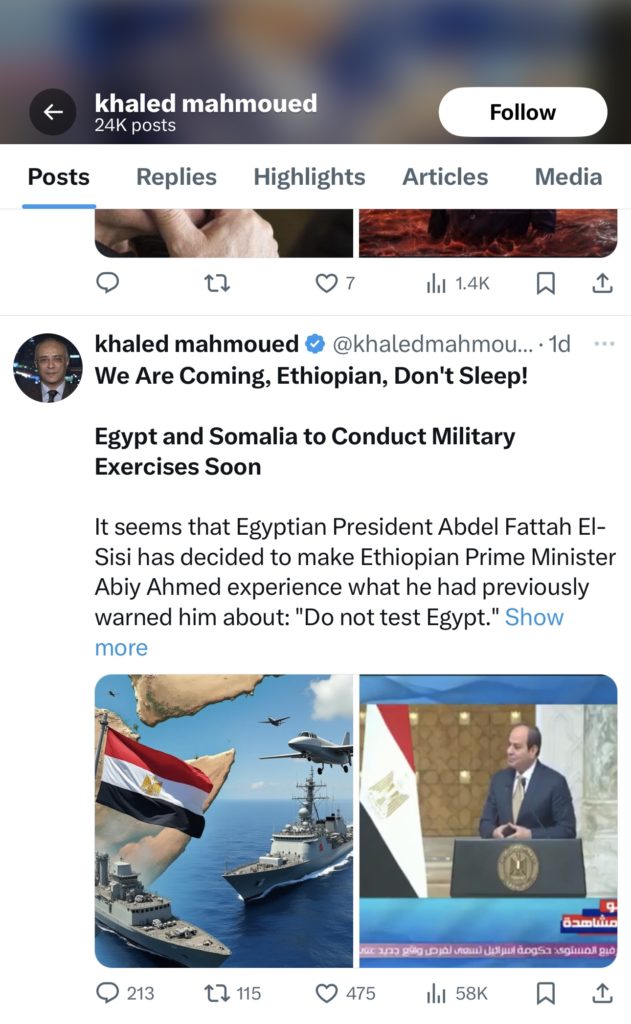
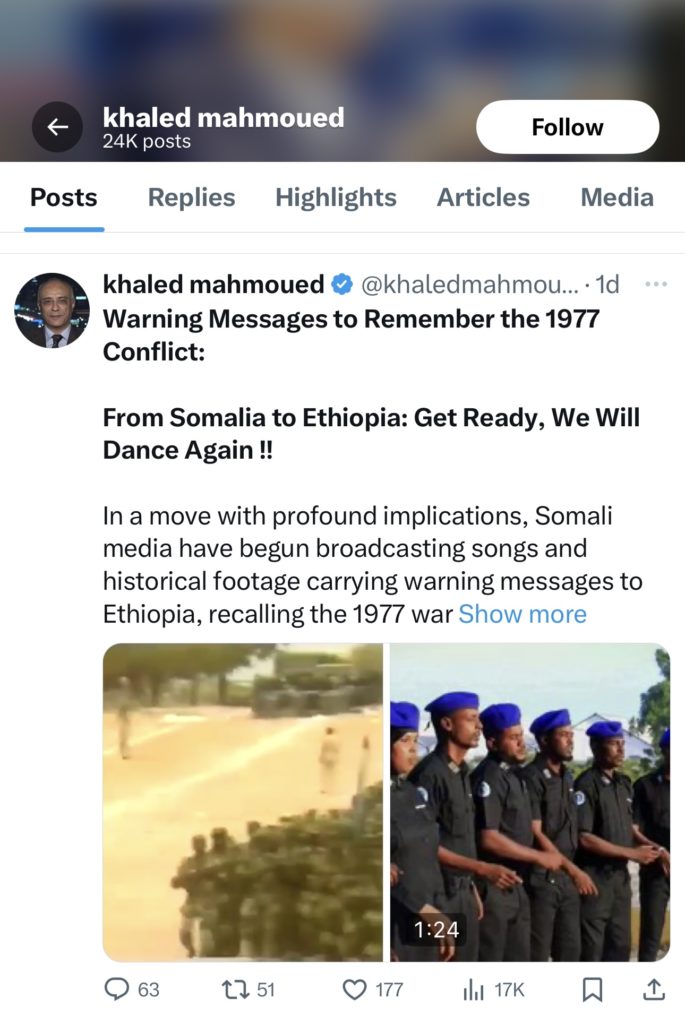
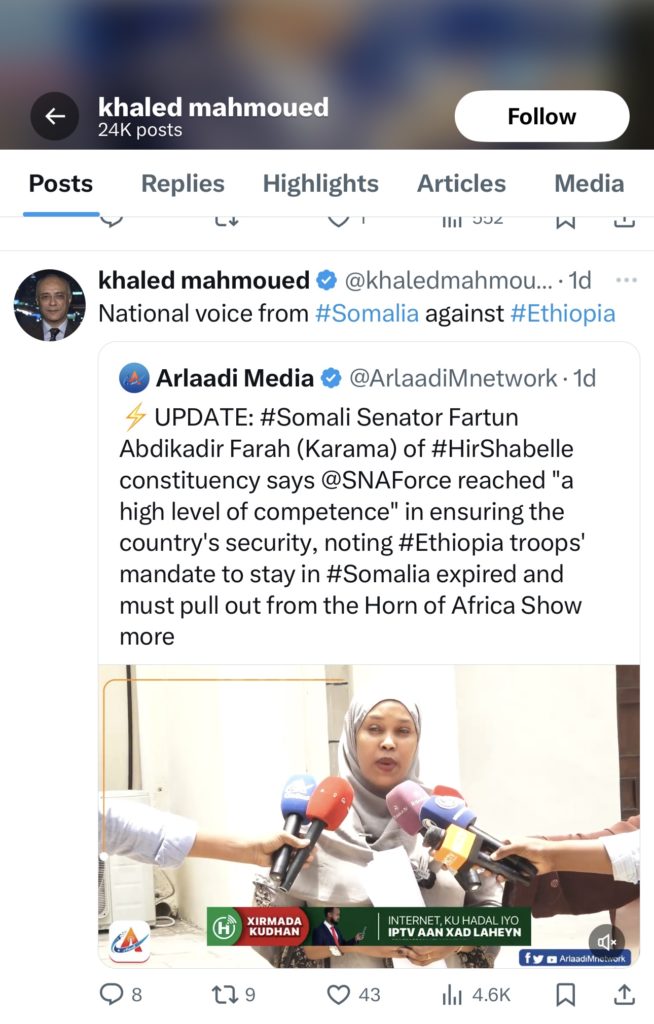
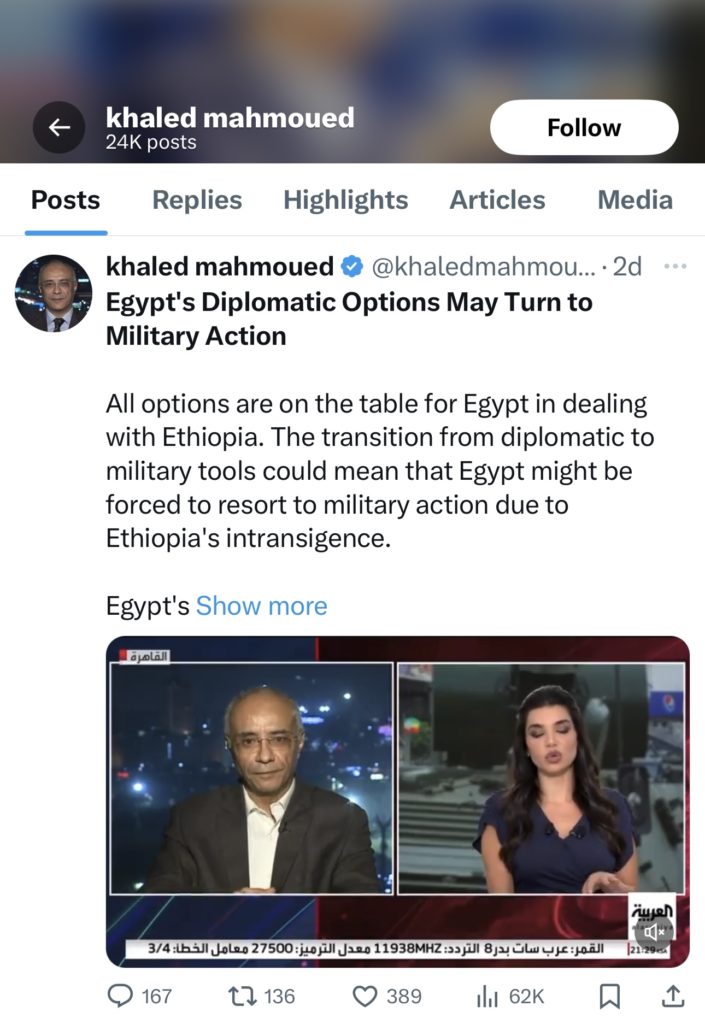
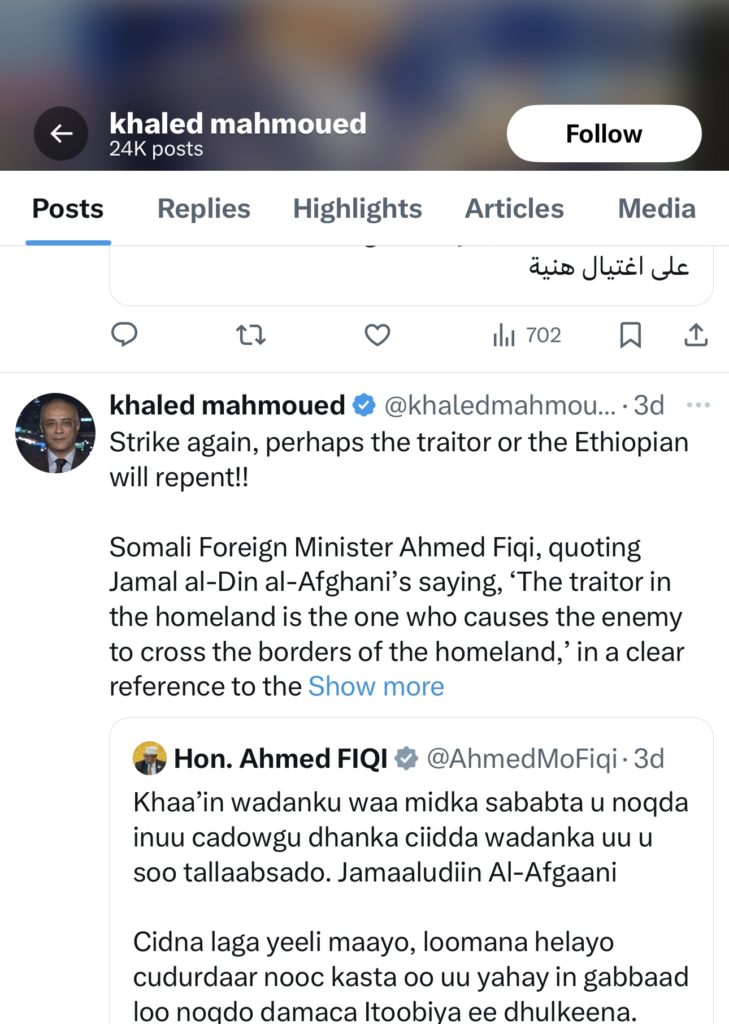
Federal Government’s Silence: A Strategic Misstep?
One of the most puzzling aspects of the current situation is the Somali federal government’s apparent indifference to the concerns raised by the South West region. Despite the clear frustrations expressed by President Laftagareen, regional MP’s, Mogadishu has remained largely silent, failing to address the issues that are driving a wedge between the central government and one of its key regional states.
This silence could be due to several factors. The federal government may be trying to avoid a direct confrontation with Ethiopia, who are currently part of the peacekeeping forces. Alternatively, it could be a strategic decision to focus on other regions perceived as more critical to national stability. However, this approach risks alienating the South West region and exacerbating the very tensions that could lead to further instability.
Samira Gaid, a security expert in the Horn of Africa, emphasizes the importance of the Federal Government of Somalia (FGS) collaborating with Federal Member States (FMS) and other stakeholders to ensure security after the Ethiopian National Defense Forces (ENDF) exit. She advocates for unity and collective action in addressing these critical issues.
There are concerns among certain segments of the Somali population regarding the deployment of alleged Egyptian troops. Specifically, many are questioning why these troops have not been assigned to the Somaliland region, where the controversial Memorandum of Understanding (MOU) with Ethiopia was signed and where Ethiopia plans to establish a military base. This discrepancy has led to suspicions and speculation about the true intentions behind the presence of these forces in Somalia. The lack of clarity surrounding their deployment raises questions about the consistency and fairness of the peacekeeping arrangements and whether they are genuinely aimed at addressing regional stability or serving other agendas.
By failing to engage in meaningful dialogue and collaboration with regional leaders, the federal government risks further isolating the South West region, potentially igniting conflicts that could spread to other parts of the country. This inaction also raises the possibility that the South West region could take a similar path to Puntland by exiting the federal union of Somalia, further destabilizing the unity of an already fragile state. A unified approach is essential to creating a stable environment where both the central government and regional states can address their shared challenges together.
Rising Tensions: Calls for Harsh Repercussions Against South West MPs
The political climate in Somalia has become so charged that certain groups are now calling for the harsh action against Members of SW MP’s who dare to raise valid concerns about the federal government’s handling of the South West crisis. This alarming development highlights the dangerous polarization within Somali politics, where dissent is increasingly met with threats rather than dialogue.
Such a response only serves to deepen divisions and undermine the very foundations of the federal system. This situation could also validate the concerns of some in the Somali public who fear that the presence of Egyptian forces in the region may be an attempt to silence opposition rather than provide constructive support. Instead of fostering unity and dialogue, these actions could further destabilize the country, making it more vulnerable to both internal strife and external exploitation.
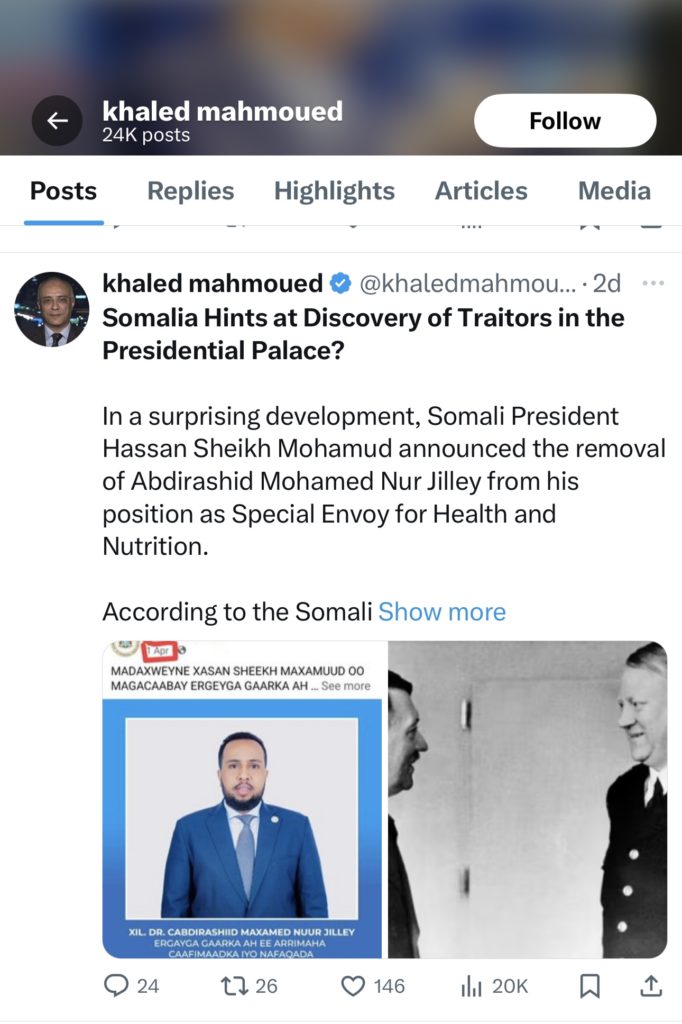
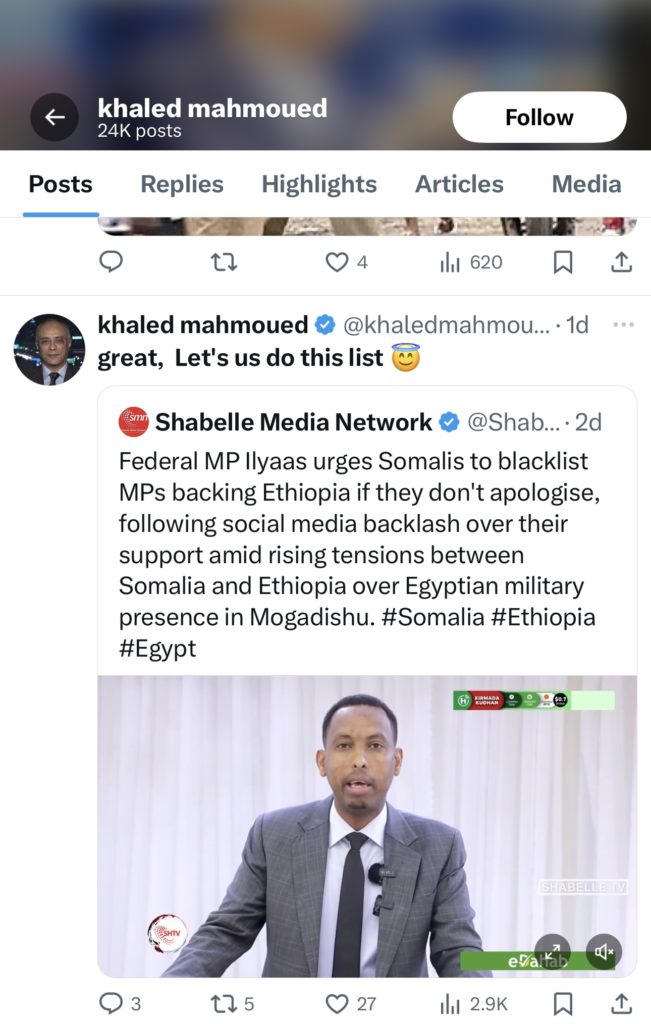
The Way Forward
As Somalia navigates these complex challenges, it is crucial for the federal government to take a more proactive approach in addressing the concerns of the South West region. This includes engaging in meaningful dialogue with regional leaders like Abdiaziz Laftagareen, Saeed Abdullahi Deni, reassessing the role of Ethiopian and Egyptian forces, and ensuring that any international agreements involving the region prioritize the well-being of the local population.
The Somali people stand firmly behind their government, but it is equally crucial for the government to listen to its people and act in the interest of unity, national integrity, and the stability of the Horn of Africa. It is important to understand that calling for peace is not a sign of weakness but a demonstration of strength and leadership. Peaceful resolution and dialogue are the cornerstones of sustainable governance and stability. However, if peace efforts do not yield the desired results, the Somali people, with the grace of God, are prepared to defend their sovereignty and address threats with the resolve and resilience that has characterized their history.
Moreover, the government must take a firm stand against those who seek to silence dissent through violence or intimidation. Protecting the rights of MPs and other political actors to speak out is essential to maintaining a healthy democracy and finding a peaceful resolution to the crisis.
In conclusion, the situation in the South West region is a microcosm of the broader challenges facing Somalia. It is a region rich in potential but also rife with tensions that could easily spiral out of control if not carefully managed. The federal government must recognize that the stakes are high—not just for the South West, but for the future of Somalia as a whole.
Share this post:
Leave a Reply